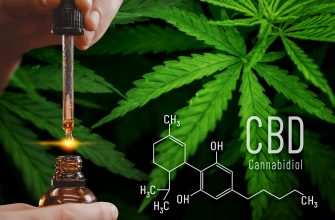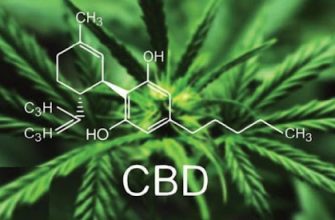- Diabetes (diabetes mellitus)
- CBD and diabetes treatment
- Diabetic cardiomyopathy Diabetic cardiomyopathy
- CBD and Diabetic Cardiomyopathy Treatment
- Diabetic retinopathy
- Neuropathic pain (damage to peripheral nerves) due to diabetes
- Diabetic Nephropathy: Diabetic Nephropathy
- Metabolic syndrome
- Risk factors for the development of metabolic syndrome are:
- CBD and Metabolic Syndrome Treatment
- Gout, cynicism, gout Gout gout
- Fibrosis, Leaf, Fibrosis
- Decoration can take place in various places and organs of the body.
- List of metabolic disorders and diseases
Diabetes (diabetes mellitus)
The most famous metabolic disorder; (Diabetes mellitus), which is characterized by high concentrations of glucose in the blood and sometimes in the urine. Diabetes is caused by impaired production of insulin by the pancreas. Diabetic patients suffer from two opposite end conditions: a condition of excess blood glucose (hyperglycemia), which is usually caused by not enough insulin in the blood, and a condition of low blood glucose (hypoglycemia), which is usually caused by too much glucose in the blood. insulin in the blood. In Israel, about 90% of diabetics have type 2 diabetes and about 10% have type 1 diabetes, which is the fourth leading cause of death.
Type 1 diabetes mellitus
An autoimmune disorder (autoimmune disease) in which the body destroys the beta cells in the pancreas, which are responsible for the production of insulin. It is believed to be a combination of hereditary (genetic) disposition and environmental circumstances. The specific environmental circumstances leading to the onset of the disease have not yet been adequately elucidated, although diet, environmental toxins and living with high mental stress are believed to be some of the main causes of the disease. About 10% of diabetics have this type, which is also known as “juvenile diabetes” and “insulin-dependent diabetes”. This occurs mainly in patients under the age of 30, especially just before school age and again during adolescence.
It is customary to divide type 1 diabetes into two types, which differ in the presence of evidence of an autoimmune response (that is, the reaction of the body’s defense systems against itself):
In type A1 There is evidence in the form of antibodies against the components of beta cells, whereas for type B1 this evidence is lacking. Type B1 It is rare and exists mainly among Hispanics and African Americans. The immune system includes a humoral response (antibodies) and a cellular response (T cells). The reason why T cells (white blood cells) attack and destroy beta cells is not entirely clear and therefore cannot be prevented from developing.
Therefore, type 1 diabetes is an incurable chronic disease, and its treatment requires constant daily monitoring of the patient’s blood glucose level using a glucometer and insulin injection using subcutaneous injections or an insulin pump.
Users who visited this page asked us How much does cbd oil cost
CBD and diabetes treatment
Type 1 diabetes has many consequences, ranging from gout, infectious skin infections, cardiovascular disease, renal complications, loss of vision, and damage to the nervous system. Diabetes is defined as an autoimmune disease, making CBD a natural and safe treatment option for the regulation of various disease-related systems. This knowledge prompted the researchers to conduct an experiment on mice with type 1 diabetes. Mice treated with CBD delayed disease progression. At the same time, there is a decrease in the activation of leukocytes (leukocytes) in the pancreas.
In addition, the study showed not only a decrease in the inflammatory activity of the pancreas, but also a decrease in the frequency of diabetes symptoms themselves. This is an excellent direction for future human research and advances in this area. In another 2016 study, researchers showed that one of the pharmacological properties of CBD is to increase pancreatic insulin production. This is very possible, and in the near future, it seems like CBD will help diabetics achieve sufficient insulin levels to break down excess blood glucose.
Diabetic cardiomyopathy Diabetic cardiomyopathy
Cardiovascular disease in diabetics. The disease can cause the heart to be unable to circulate blood efficiently in the body – a condition known as heart failure, where fluid builds up in the lungs or legs. Most cases of heart failure in diabetics are associated with coronary artery disease, and use of the term diabetic cardiomyopathy occurs only when coronary artery disease does not occur.
CBD and Diabetic Cardiomyopathy Treatment
Cumulative studies point to the ability of cannabidiol to relieve and help in cases of cardiac dysfunction by attenuating cardiac fibrosis, that is, the conversion of muscle cells into connective tissue cells (scars). The antioxidant properties of CBD, the calming, anti-inflammatory and anti-inflammatory effects of cells caused by diabetes, increase its effectiveness. Together with the high safety profile of CBD and the independence that can develop from consistent use of CBD, points to the benefits of CBD in treating complications and heart disease associated with diabetes. Link…
Diabetic retinopathy
Diabetes is the leading cause of blindness in the Western world. High sugar levels cause destruction of the retina and distortion of the structure of the blood vessels in it. Recent research suggests CBD has the ability to calm and reduce retinal inflammation and disease. Link.
Neuropathic pain (damage to peripheral nerves) due to diabetes
Nerve cell damage is common in diabetics. Disruption of the regularity of blood circulation causes a feeling of physical limitation, especially in the limbs. Symptoms may include chronic pain, tingling, numbness, sensitivity to temperature, balance problems, and oversensitivity when handling objects.CBD can relieve and help those suffering from pain in the peripheral nervous system due to its ability to reduce the production of distorted proteins that accumulate in cells in the nervous system and the environment due to inefficient circulation.
Research link
Diabetic Nephropathy: Diabetic Nephropathy
A complication of diabetes that causes kidney function to decline to end-stage renal failure. Since the endocannabinoid system is involved in energy and fat homeostasis, it can be assumed that it also affects kidney function, and indeed, a study found that kidney damage in diabetes is associated with dysfunction of the endocannabinoid system. The upregulation of CB1 receptor and GPR55 receptor in tubular cells near the kidney nucleus is caused by an increase in glucose and albumin concentration. This is a diabetic condition. CBD blocks the orphan receptor GPR55 and this is probably one of the mechanisms of action that explains the medical effect of CBD on the kidneys.
Metabolic syndrome
Metabolic syndrome is a collection of symptoms that make you more likely to develop type 2 diabetes or cardiovascular disease. Its characteristics are abdominal obesity, hypertension, high blood triglycerides or low blood HDL cholesterol, and fasting hyperglycemia. How it happens: Adipose tissue releases large amounts of free fatty acids. In the liver, free fatty acids cause increased production of glucose and triglycerides and increased secretion of VLDL (very low density lipoproteins). In this condition, there is a decrease in HDL and an increase in LDL. Free fatty acids reduce muscle insulin sensitivity. An increase in glucose concentration and levels of free fatty acids leads to increased secretion of insulin in the pancreas – a condition that leads to hyperinsulinemia, which contributes to hypertension.
Risk factors for the development of metabolic syndrome are:
A diet rich in empty carbohydrates (no minerals, vitamins and active dietary fiber) causes an increase in the production of fatty acids and triglycerides in the liver, abdominal obesity, a passive lifestyle without exercise, age, diabetes, coronary heart disease, hypogonadism (lack of testosterone). ).
Medicines: glucocorticoids (anti-inflammatory steroids) and especially with long-term use.
Susceptibility to metabolic syndrome will be in patients who also suffer from:
- PTSD – Post Traumatic Stress Disorder
- Mental disorders such as attention deficit hyperactivity disorder (schizophrenia).
- Fibromyalgia patients
CBD and Metabolic Syndrome Treatment
Healthy lifestyles and changes in dietary habits are an inevitable necessity in the treatment of the syndrome, but it is still customary to treat the disease with drugs – for each symptom individually. Its side effects are numerous and serious, and include depression and suicide.
In contrast, CBD can suppress increased appetite without all of the same side effects. As a CBD agonist for PPARγ receptors, it helps differentiate adipocytes (fat cells). CBD has immunomodulatory effects and slows down the development of atherosclerosis and cardiovascular disease as a result of increased blood glucose levels. CBD has also been shown to be effective in treating coronary artery disease, which is one of the known complications of metabolic syndrome. Link…
Gout, cynicism, gout Gout gout
Chronic arthritis, which results from a metabolic disorder in the body, which manifests itself in an increase in the level of uric acid in the blood, a condition called “hyperuricemia”. Patient damage occurs when, over the years, this acid builds up in the joints, and then arthritis forms there or in the kidneys, where stones form. Various anecdotal reports show that CBD has a positive effect on patients with this condition by reducing inflammation and relieving pain.
Fibrosis, Leaf, Fibrosis
The pathological process of the formation of connective tissue in an organ or tissue as an attempt by the body to restore itself from damage caused by trauma, inflammation, etc. The main cell in this process is the fibroblast, which is attracted to the site of damage and begins to build connective tissue rich in collagen fibers also called a scar. Since the body cannot restore tissue to its original form, the new tissue will have a different texture and quality compared to the surrounding tissue, which has a noticeable negative effect on the function of the affected organ. It can form between the limbs in the form of adhesions that press on different limbs and can cause, for example, intestinal obstruction or the sound of pipes.
Decoration can take place in various places and organs of the body.
Primary pulmonary fibrosis (idiopathic pulmonary fibrosis) A condition in which lung tissue is replaced by lymphatic connective tissue for an unknown reason. There is no cure for the disease, and it ends with the need for a lung transplant. Cystic fibrosis – Recurrent infections cause tissue destruction and replacement with connective tissue. Medicines such as amiodarone, blaumycin, nitropurantoin, and others can cause pulmonary embolism.
Hepatitis caused by alcohol or fatty liver begins a process in which liver cells are replaced with beautiful tissue until cirrhosis develops. In myocardial infarction, beautiful connective tissue replaces necrotic myocardial tissue. This tissue is inactive, and if it is large enough, heart failure develops. If the integrity of the skin is damaged, a beautiful tissue is formed at the site of the injury – a scar. Sometimes the scar is large and visible and a keloid forms.
To learn more about CBD and its mechanisms of action in connective tissue renewal:
List of metabolic disorders and diseases
Abtalipoproteinemia,
Altacia ALD
Hypogonadism, hypocholesterolemia, hypothermia, hypokalemia, hypocalcemia, hypercholesterolemia, hyperlipidemia, hyperphosphatemia, hyperkalemia, hypercalcemia, hemochromatosis, water poisoning, dehydration.
MTHFR deficiency Alpha-1 antitrypsin deficiency,
Metabolic acidosis.
Glycogen storage disease type 1, glycogen storage disease type 2
Batten’s disease, Wilson’s disease, Neumann-Pick disease, Krava’s disease, heatstroke. Poison Syndrome.
Cystic fibrosis. Cystic fibrosis.
Amyloidosis.
Porphyria.
Familial Mediterranean fever.
Lactose intolerance.
Gout.
Gilbert Syndrome, Cudgel Johnson Syndrome, Metabolic Syndrome, Tumor Dislocation Syndrome, Fish Stink Syndrome,
Crigler-Najer syndrome, insufficient absorption of fructose, hypophosphorus in the blood.









